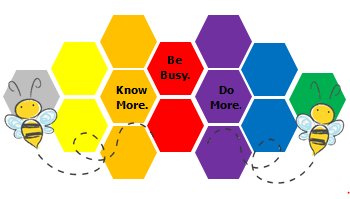Writing
What makes a good writer?
- A good writer can communicate their ideas.
- A good writer has a purpose for their writing.
- A good writer considers the audience/reader.
- A good writer shows excellent listening.
- A good writer thinks about the effect of their writing.
- A good writer checks their work, edits and improves it.
Our Vision for Writing
At Devonshire Primary Academy, our vision is to nurture confident, capable and enthusiastic writers who hold a genuine passion for the craft. We believe that an intrinsic enthusiasm for reading is fundamental to writing excellence; therefore, we inspire our pupils to use this to enhance their writing and build a rich vocabulary. We are committed to creating a vibrant writing culture, where each child not only values words and understands their power but is also excited by language itself. Through this vibrant environment, we aim to provide our children not only with a love of creative writing, but with the essential writing skills they need to write effectively across all curriculum areas, enabling effective communication of ideas for different purposes and audiences. Recognizing writing as a crucial life skill, we hope to equip our children with the knowledge, desire, and enthusiasm to be successful writers throughout their academic and professional journeys, fostering pride in their work, clarity in purposeful communication and a lifelong love for language.
How we Teach Writing
We use the ‘Talk for Writing’ approach to enable our children to write independently for a variety of audiences and purposes, internalising the language structures needed across a range of text types such as: explanations, instructions, reports, balanced arguments, stories and poems. This is a creative and rigorous approach developed by the author Pie Corbett and is fundamentally based on the key principles of how children learn.
Watch the clip below as Pie Corbett explains more about Talk for Writing and why it works.
‘Talk for Writing’ allows our children to imitate the key language patterns they need for a particular text type orally before they try reading and looking at it more closely. Through fun activities that help them to rehearse the tune of the language they need, followed by modelled and shared writing to show them how to craft their texts, our children are helped to write in the same style. They are also given meaningful opportunities each half term to revisit and review a range of text types and apply new learning in different contexts. Grammar and punctuation are taught both explicitly and implicitly within our writing lessons; they help us to make sure that our readers understand exactly what we want to say. Our children learn to plan, draft, revise, edit and present their work and we give our children the chance to reflect on their own and others’ writing and evaluate its success.
Spelling
We teach children how to segment to spell using our Phonic Scheme in EYFS and Year 1. In Year 2, we use Jungle Club, which is an online platform which provides engaging daily spelling lessons. In KS2 classes, we continue with a progressive phonic approach to spelling with four short lessons each week, returning to the same sounds each year and deepening understanding of the letter patterns that can be used to make them. We cover words and spelling patterns specified by the National Curriculum and teach children further strategies they can use to spell words accurately and independently.
Handwriting
Throughout school, our children are encouraged to write in a neat, legible style. This begins in EYFS and KS1 with the ‘Squiggle’ Scheme which connects brain and movement. This is built on throughout the school with weekly handwriting practice, often linked to work in spelling.
Writing at Home
There are lots of ways you can support your child to write at home!
Encourage your child to record their writing in a variety of ways. They may wish to keep a diary, write a story or send a postcard. Support their ideas and give plenty of encouragement.







